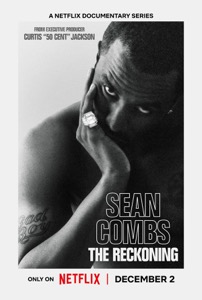Entertainment
Dana Carvey’s Son Dex’s Official Cause of Death Revealed on January 24, 2024 at 3:41 am Us Weekly
Dana Carvey’s son Dex Carvey’s official cause of death has been revealed.
The Los Angeles County Medical Examiner’s Office ruled on Tuesday, January 23, that Dex died on November 15, 2023, from “drug toxicity” due to a combinaton of fentanyl, ketamine and cocaine, according to records obtained by USA Today. The manner of death was ruled an accident.
The final coroner’s report is pending.
Dex’s official cause of death comes two months after Dana, 68, announced that Dex passed away at the age of 32 in a joint statement with wife Paula Zwagerman.
“Last night we suffered a terrible tragedy. Our beloved son, Dex, died of an accidental overdose. He was 32 years old,” the couple wrote via Instagram in November 2023. “Dex packed a lot into those 32 years. He was extremely talented at so many things — music, art, filmmaking, comedy — and pursued them passionately.”
They continued, “It’s not an exaggeration to say that Dex loved life. And when you were with him, you loved life too. He made everything fun. … Dex was a beautiful person. His handmade birthday cards are a treasure. We will miss him forever. To anyone struggling with addiction or who loves someone struggling with addiction, you are in our hearts and prayers.”
“We’ll miss him every day,” the statement concluded. “To anyone struggling with addiction or who loves someone with addiction, you are in our hearts and prayers.”
Prior to his death, Dex was following in his father’s comedic footsteps. He snagged roles in the 2013 miniseries The Funster alongside his father and 2015’s Joe Dirt 2: Beautiful Loser. In 2016, he opened for Dana on his Netflix special Straight White Male. He was also a founder of Third Wheel Comedy, a live performance venue in Hollywood, and was gearing up for an upcoming project with B-Sides Comic.
Al Pereira/Getty Images
After a brief hiatus, Dana returned to his “Fly on the Wall” podcast, which he cohosts with David Spade, earlier this month. During the January 17 episode, the comedian opened up about how he and his family have been dealing with their grief.
“It’s me and my wife and our son’s private journey,” Dana, who also shares son Thomas, 30, with Zwagerman, said. “We’re all together, and we do a lot of fun things. We hike, we go to church. You just want to make sure that you keep moving.”
Dana noted that he is suffering from the same kind of “pain” that “millions of other people on this planet” also endure, adding, “And you don’t know how long you’re going to be on it or when it will stop or when it will get better. But in the meantime, all of this kind of stuff is very healthy.”
Dana and Zwagerman tied the knot in 1983 before welcoming Dex 11 years later. Son Thomas arrived in 1994. The former Saturday Night Live star had a major Hollywood career before ultimately deciding to step out of the spotlight to focus on raising his two children.
“I have friends who get stressed about fading or not being as hot. I never quite engaged that. I have a lot of drive to try to be the best I can be, have people be blown away by what I do and repeating it. But the other side of me is fine wherever I am,” Dana told People in September 2019. “My wife and I made two humans, so I thought I probably should make some adjustments based on the two humans being there,”
If you or someone you know is struggling with substance abuse, contact the Substance Abuse and Mental Health Services Administration (SAMHSA) National Helpline at 1-800-662-HELP (4357).
Dana Carvey’s son Dex Carvey’s official cause of death has been revealed. The Los Angeles County Medical Examiner’s Office ruled on Tuesday, January 23, that Dex died on November 15, 2023, from “drug toxicity” due to a combinaton of fentanyl, ketamine and cocaine, according to records obtained by USA Today. The manner of death was
Us Weekly Read More
Continue Reading
Entertainment
What We Can Learn Inside 50 Cent’s Explosive Diddy Documentary: 5 Reasons You Should Watch

50 Cent’s new Netflix docuseries about Sean “Diddy” Combs is more than a headline-grabbing exposé; it is a meticulous breakdown of how power, celebrity, and silence can collide in the entertainment industry.
Across its episodes, the series traces Diddy’s rise, the allegations that followed him for years, and the shocking footage and testimonies now forcing a wider cultural reckoning.

1. It Chronicles Diddy’s Rise and Fall – And How Power Warps Reality
The docuseries follows Combs from hitmaker and business icon to a figure facing serious criminal conviction and public disgrace, mapping out decades of influence, branding, and behind-the-scenes behavior. Watching that arc shows how money, fame, and industry relationships can shield someone from scrutiny and delay accountability, even as disturbing accusations accumulate.

2. Never-Before-Seen Footage Shows How Narratives Are Managed
Exclusive footage of Diddy in private settings and in the tense days around his legal troubles reveals how carefully celebrity narratives are shaped, even in crisis.
Viewers can learn to question polished statements and recognize that what looks spontaneous in public is often the result of strategy, damage control, and legal calculation.
3. Survivors’ Stories Highlight Patterns of Abuse and Silence
Interviews with alleged victims, former staff, and industry insiders describe patterns of control, fear, and emotional or physical harm that were long whispered about but rarely aired in this detail. Their stories underline how difficult it is to speak out against a powerful figure, teaching viewers why many survivors delay disclosure and why consistent patterns across multiple accounts matter.
4. 50 Cent’s Approach Shows Storytelling as a Tool for Accountability
As executive producer, 50 Cent uses his reputation and platform to push a project that leans into uncomfortable truths rather than protecting industry relationships. The series demonstrates how documentary storytelling can challenge established power structures, elevate marginalized voices, and pressure institutions to respond when traditional systems have failed.
5. The Cultural Backlash Reveals How Society Handles Celebrity Accountability
Reactions to the doc—ranging from people calling it necessary and brave to others dismissing it as a vendetta or smear campaign—expose how emotionally invested audiences can be in defending or condemning a famous figure. Watching that debate unfold helps viewers see how fandom, nostalgia, and bias influence who is believed, and why conversations about “cancel culture” often mask deeper questions about justice and who is considered too powerful to fall.
Entertainment
South Park’s Christmas Episode Delivers the Antichrist

A new Christmas-themed episode of South Park is scheduled to air with a central plot in which Satan is depicted as preparing for the birth of an Antichrist figure. The premise extends a season-long narrative arc that has involved Satan, Donald Trump, and apocalyptic rhetoric, positioning this holiday episode as a culmination of those storylines rather than a stand‑alone concept.
Episode premise and season context
According to published synopses and entertainment coverage, the episode frames the Antichrist as part of a fictional storyline that blends religious symbolism with commentary on politics, media, and cultural fear. This follows earlier Season 28 episodes that introduced ideas about Trump fathering an Antichrist child and tech billionaire Peter Thiel obsessing over prophecy and end‑times narratives. The Christmas setting is presented as a contrast to the darker themes, reflecting the series’ pattern of pairing holiday imagery with controversial subject matter.
Public and political reactions
Coverage notes that some figures connected to Donald Trump’s political orbit have criticized the season’s portrayal of Trump and his allies, describing the show as relying on shock tactics rather than substantive critique. Commentators highlight that these objections are directed more at the depiction of real political figures and the show’s tone than at the specific theology of the Antichrist storyline.
At the time of reporting, there have not been widely reported, detailed statements from major religious leaders focused solely on this Christmas episode, though religion-focused criticism of South Park in general has a long history.
Media and cultural commentary
Entertainment outlets such as The Hollywood Reporter, Entertainment Weekly, Forbes, Slate, and USA Today describe the Antichrist arc as part of South Park’s ongoing use of Trump-era and tech-world politics as material for satire.
Viewer guidance and content advisory
South Park is rated TV‑MA and is intended for adult audiences due to strong language, explicit themes, and frequent use of religious and political satire. Viewers who are sensitive to depictions of Satan, the Antichrist, or parodies involving real political figures may find this episode particularly objectionable, while others may view it as consistent with the show’s long‑running approach to controversial topics. As with previous episodes, individual responses are likely to vary widely, and the episode is best understood as part of an ongoing satirical series rather than a factual or theological statement.
Entertainment
Sydney Sweeney Finally Confronts the Plastic Surgery Rumors

Sydney Sweeney has decided she is finished watching strangers on the internet treat her face like a forensic project. After years of side‑by‑side screenshots, “then vs now” TikToks, and long comment threads wondering what work she has supposedly had done, the actor is now addressing the plastic surgery rumors directly—and using them to say something larger about how women are looked at in Hollywood and online.

Growing Up on Camera vs. “Before and After” Culture
Sweeney points out that people are often mistaking normal changes for procedures: she grew up on camera, her roles now come with big‑budget glam teams, and her body has shifted as she has trained, aged, and worked nonstop. Yet every new red‑carpet photo gets folded into a narrative that assumes surgeons, not time, are responsible. Rather than walking through a checklist of what is “real,” she emphasizes how bizarre it is that internet detectives comb through pores, noses, and jawlines as if they are owed an explanation for every contour of a woman’s face.
The Real Problem Isn’t Her Face
By speaking up, Sweeney is redirecting the conversation away from her features and toward the culture that obsesses over them.
She argues that the real issue isn’t whether an actress has had work done, but why audiences feel so entitled to dissect her body as public property in the first place.
For her, the constant speculation is less about curiosity and more about control—another way to tell women what they should look like and punish them when they do not fit. In calling out that dynamic, Sweeney isn’t just defending herself; she is forcing fans and followers to ask why tearing apart someone else’s appearance has become such a popular form of entertainment.















